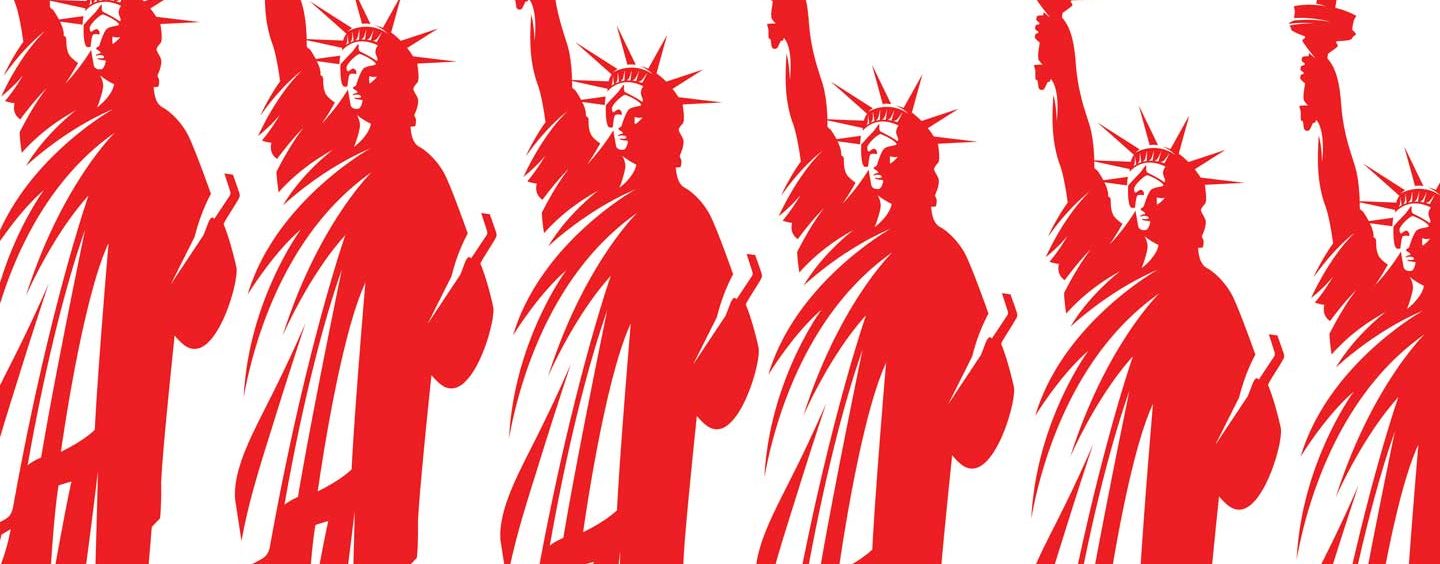After the 2016 election, Texas passed a law that requires voters to present a government-issued ID card. Alternatively, in lieu of that ID, they may present documents from a limited list, including bank statements, utility bills, or a birth certificate and sign an affidavit stating that they were not able to acquire a government-issued ID for a narrow set of approved reasons. If the voter does not have any of the IDs on that list, she may cast a provisional ballot and provide the required documentation within six days of the election.
Kansas
After the 2010 election, Kansas Republicans passed a restrictive law that requires voters to present one from a narrow list of approved photo IDs.
North Dakota
After the 2016 election, North Dakota Republicans passed a law that requires voters to show photo ID issued by the state, a tribal government, or a North Dakota long-term care facility. The ID must include a residential street address, a requirement that could disenfranchise thousands of Native American voters, who live on reservations in rural areas and don’t have street addresses. The law allows voters to show other forms of documentation that display a residential address, including bank statements or utility bills, but many may not have that documentation because of homelessness or poverty. Voters without approved photo ID may submit a provisional ballot, but are still required to show the ID promptly for their vote to be counted.
Missouri
After a protracted political battle between Republican lawmakers and the state’s Democratic governor, Missouri voters overwhelmingly approved a ballot initiative in 2016 that requires voters to present ID from a pre-approved list. If a voter does not have acceptable ID, she may cast a provisional ballot that will be counted if acceptable ID is shown at a polling station later, or if poll workers can match the voter’s signature to the one on the voter registration form. Earlier this month, a state judge blocked a provision that would have required voters without photo ID to sign an affidavit. And the ACLU is currently suing Missouri for failing to fund programs required by the law that would provide free voter IDs and train poll workers in how to navigate its requirements.
Arkansas
After the 2016 election, Republican lawmakers passed a voter ID requirement that will be in effect for this year’s midterms. Voters must now present a government-issued photo ID at their polling station. If they do not possess the required ID, they may cast a provisional ballot, and state election officials will decide later whether or not to count the vote. Earlier this month, the law was upheld by the state supreme court, which in 2016 had blocked a prior version that didn’t include the provisional ballot alternative. This year, a measure is on the ballot in Arkansas that would specifically allow photo ID requirements for voting, effectively ending court challenges to the law.
Wisconsin
After the 2010 election, Republican lawmakers passed a voter ID law that was signed by Gov. Scott Walker. The law was subsequently blocked by a federal district court until a few months before the 2016 election. Voters are now required to present one of a narrow list of approved photo IDs. The ACLU has sued Wisconsin over the law.
Tennessee
After the 2010 election, Republican lawmakers in Tennessee passed one of the strictest voter ID laws in the nation, which allows handgun carry permits to be displayed to poll workers but not student IDs. If a voter does not have the required ID, they may cast a provisional ballot and then display appropriate ID at an election commission office within two days of the election.
Mississippi
In 2011, a ballot measure was overwhelmingly approved that required voters to display photo ID to poll workers. The law took effect in 2014, after the Supreme Court gutted the “preclearance” requirement of the Voting Rights Act in Shelby County v. Holder. Voters must now show one of a list of pre-approved photo IDs in order to vote, or cast a provisional ballot and then bring the ID to a Circuit Clerk’s office within five days.
Alabama
After the 2010 election, Republican lawmakers in Alabama passed a law requiring voters to display one of a pre-approved list of photo IDs in order to vote. Similar to Mississippi, the law went into effect in 2014, after the Supreme Court’s Shelby County decision. If voters do not have an approved photo ID, they may submit a provisional ballot.
South Carolina
After the 2010 election, Republican lawmakers in South Carolina passed a law requiring voters show photo ID at polling stations. The law was challenged in court and in 2012 it was amended to allow voters to show their voter registration card and sign an affidavit stating they have a “reasonable impediment” to obtaining photo ID.
Virginia
After the 2012 election, Republican lawmakers passed a law requiring voters show one of a pre-approved list of photo IDs at polling stations. After a legal challenge, the law was upheld by a federal appeals court in late 2016. Voters without approved photo ID may submit a provisional ballot at their polling station, but they must then acquire ID and submit a copy of it to a voter registration office by the Friday after the election for their vote to be counted.
Rhode Island
After the 2010 election, Democratic lawmakers in Rhode Island passed a law requiring voters to show one of a pre-approved list of photo IDs at their polling station. The law is considered less strict than those in other states—if voters lack the required ID, they may cast a provisional ballot that will be counted with no follow-up required by the voter provided their signature matches the one on file.
New Hampshire
After the 2010 election, Republican lawmakers overrode a veto by the state’s Democratic governor to pass a law that requires voters to present one of a pre-approved list of photo IDs at their polling station. The law is far less strict than those in other states, allowing voters without photo ID to cast a standard ballot, provided they are willing to have their picture taken and affixed to a signed affidavit.
West Virginia
In 2016, Republican lawmakers passed a law requiring photo ID at polling stations. The law went into effect this year, but it is less strict than those in other states, allowing voters who do not have photo ID to cast a provisional ballot after signing an affidavit. If the voter’s signature matches the one on file, that vote will be counted. Alternately, voters without ID can have their identity confirmed at the polling station by an adult they’ve known for at least six months.




